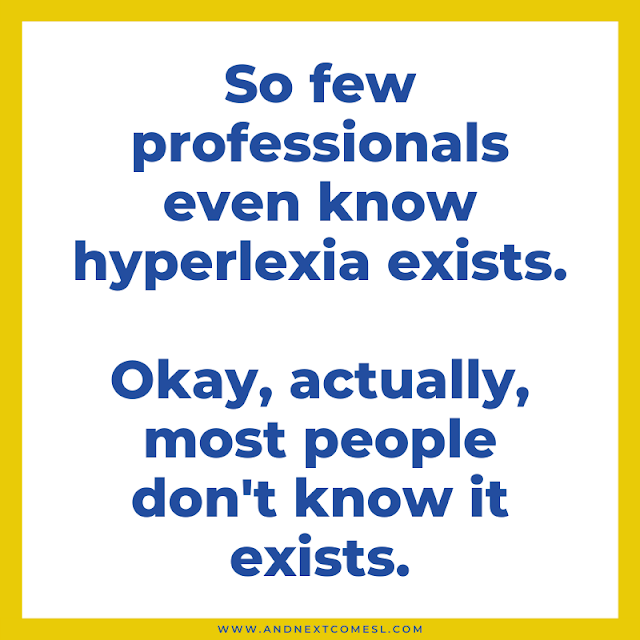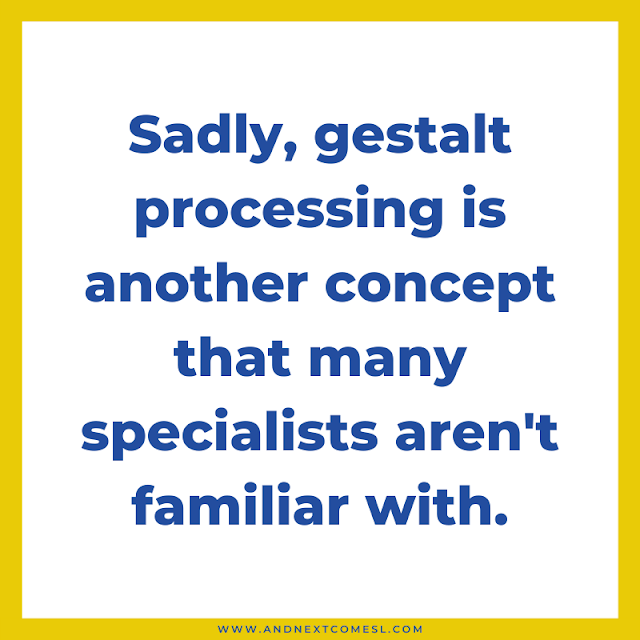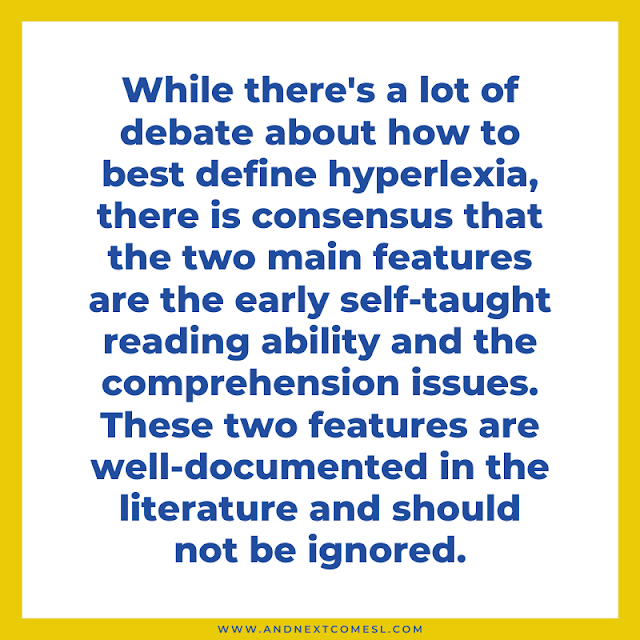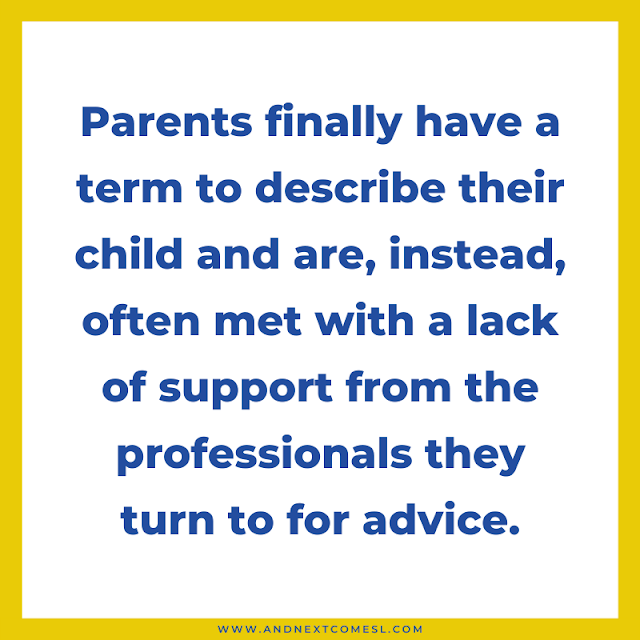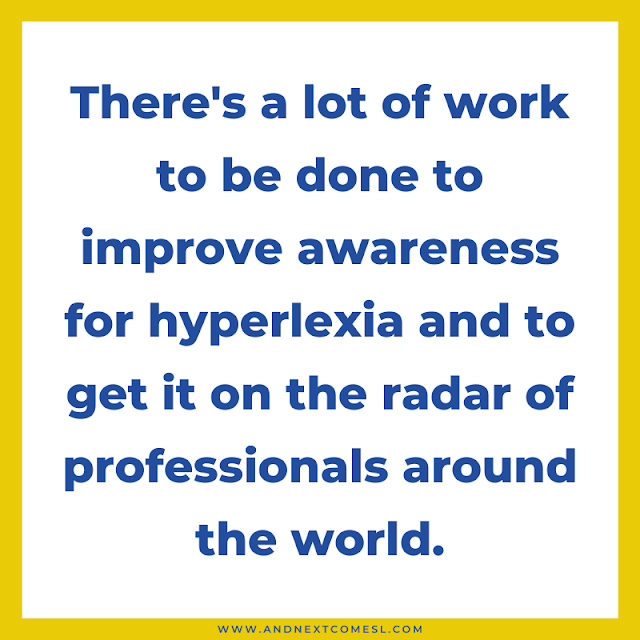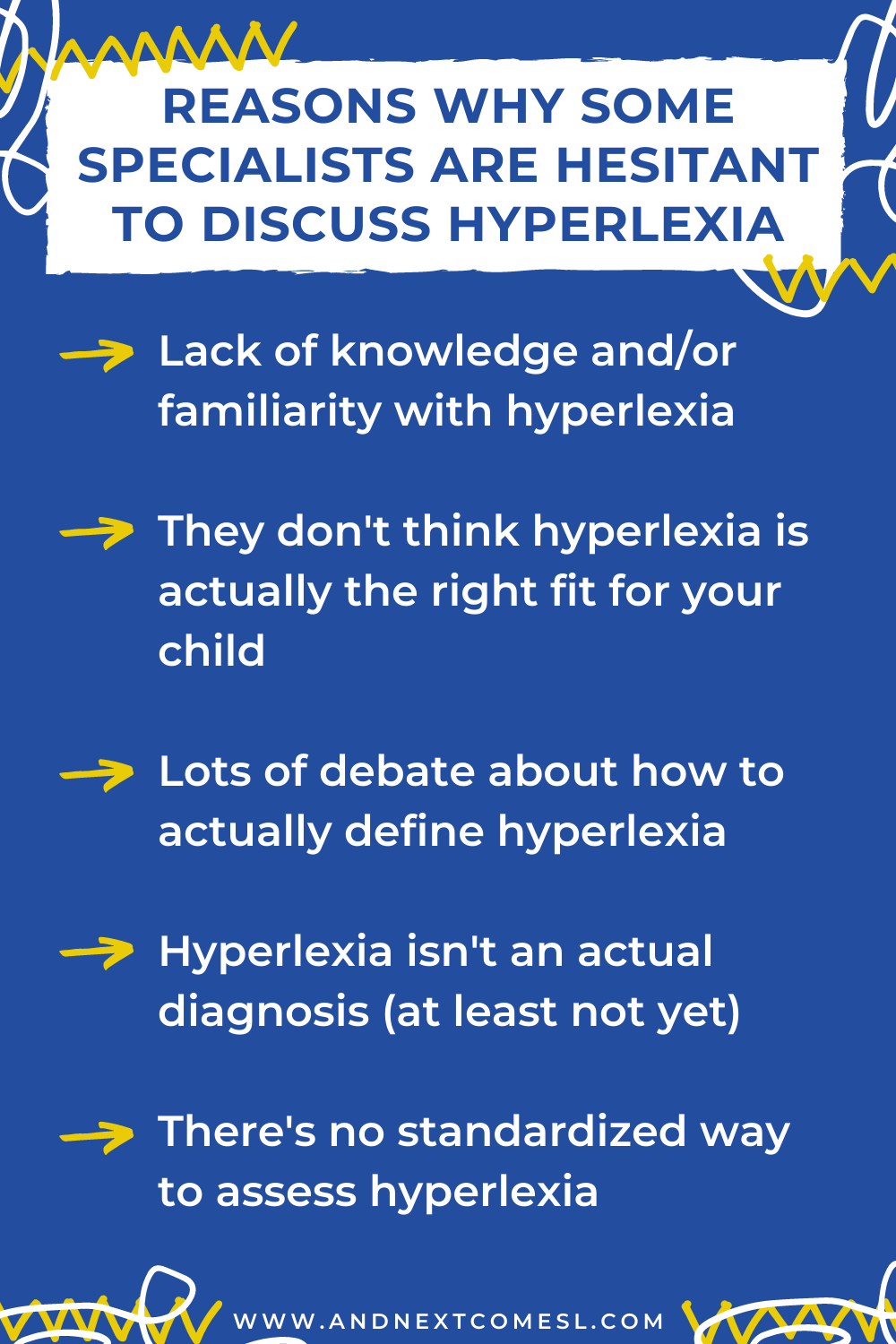After hours (days, weeks, months, or even years!) trying to find something that describes your child to a tee, you finally stumble across hyperlexia.
You excitedly think to yourself, "Yes, this is it. This is what my child has." And you're instantly flooded with relief.
Armed with the knowledge that hyperlexia is indeed a thing, you decide to bring up the term to your child's pediatrician, speech therapist, psychologist, or some other specialist, only for them to dismiss it entirely.
And your heart sinks immediately.
It's an incredibly disheartening scenario.
Unfortunately though, it's the reality for a lot of parents of hyperlexic children.
Yet, when you take a minute to break things down, it's understandable why some specialists are so quick to dismiss the possibility of hyperlexia and it usually comes down to a handful of things.
So let's take a look at the reasons why some specialists are hesitant to discuss hyperlexia. It might give you a better understanding of why you might be experiencing these roadblocks yourself and might give you the courage you need to advocate for your child.
5 Reasons Why Some Specialists are Hesitant to Discuss Hyperlexia
While there could likely be a handful of other reasons why some specialists are quick to dismiss the possibility of hyperlexia, these are the most common.
1. Lack of Knowledge and/or Familiarity with Hyperlexia
Hyperlexia is poorly understood by many, not just specialists. Even well-meaning parents of hyperlexic children don't fully understand what hyperlexia is or isn't. Seriously, if you spend some time in any of the hyperlexia support groups, you'll quickly see what I mean.
The other issue is that so few professionals even know hyperlexia exists in the first place.
Okay, actually, most people don't know it exists.
In fact, I hadn't heard of it until my son was about 5. Although, apparently there were two whole sentences dedicated to it in a special education textbook I had for one of my university classes back in the day....Two. No wonder that term didn't stick back then.
So, unfortunately, the possibility of finding a specialist who is both familiar with and knowledgeable about hyperlexia is quite rare.
And it makes sense that specialists would be hesitant to discuss hyperlexia when they don't know much about it themselves. Or don't even know it exists.
The same goes for gestalt processing. Sadly, that's another concept that many specialists aren't familiar with.
Now, I know parents might feel discouraged that the specialists and professionals they speak to might know next to nothing about hyperlexia.
But think of it as an opportunity to share what you know about hyperlexia and to pass along some information.
You can always gently encourage them to research hyperlexia and get back to you. Or you could always seek a second opinion. But, let's be honest, there's no guarantee that the next one will know what hyperlexia is either.
If you're a therapist who is reading this, then please continue to read and research hyperlexia (like you obviously already are!). Parents around the world are desperate for support and are relying on finding professionals who can actually help.
2. They Don't Think Hyperlexia is Actually the Right Fit for Your Child
Now, sometimes it's not the specialist's lack of knowledge or familiarity with hyperlexia that's the underlying issue here. Instead, sometimes it's actually the opposite and they legit don't think hyperlexia is actually what your child has.
Sometimes people are quick to label their child as hyperlexic even when they don't fully grasp what hyperlexia is. So the child might check one box, but miss other key characteristics that make up hyperlexia.
For example, they might have an intense interest in letters, but they don't read (the reading is the hallmark characteristic after all so without it, it's not hyperlexia). Or they might not have the social or language issues that accompany hyperlexia so the child could actually just be an early reader vs a hyperlexic one. Or maybe the kid is simply just gifted.
Regardless, if a specialist dismisses hyperlexia after meeting with you and your child, then dig deeper and ask them why. Is it because of one of the other reasons on this list? Or is it because they really don't think it's the appropriate label for your child? Obviously, there's a big difference between the two.
3. Lots of Debate About How to Actually Define Hyperlexia
Another big issue is that there is still a lot of debate about how to best define hyperlexia.
For example, should we include all early self-taught readers or reserve the term only for those who are otherwise neurodivergent? Is it a splinter skill or savant skill? Is it something they outgrow or not? And so on...
Although there is some debate, it is worth noting that there is consensus that the two main features are the early self-taught reading ability and the comprehension issues. Those two features are well-documented in the literature and should not be ignored.
However, since there's debate around the definition, it's not surprising that hyperlexia isn't an actual standalone diagnosis yet. Nor is there a standardized way to assess it at this point. Which leads me to my next two points...
4. Hyperlexia isn't an Actual Diagnosis (at least not yet)
Many parents - myself included - would love to see hyperlexia as a standalone diagnosis one day, much like dyslexia is.
However, at this point in time, hyperlexia isn't a standalone diagnosis.
Instead, think of hyperlexia as a practical label that helps you understand how an individual learns. A unique learning style, in other words.
But, since it's not an official diagnosis in diagnostic manuals at this point, you can see why specialists might be quick to dismiss it.
So to receive a written confirmation of hyperlexia is pretty rare.
However, specialists who are familiar with and knowledgeable about hyperlexia can definitely help give an informal diagnosis or, at the very least, acknowledge that the term hyperlexia is a good fit for your child.
5. There's No Standardized Way to Assess Hyperlexia
It's not surprising that there isn't a standardized test for hyperlexia, especially given the previous two points. I mean how do you assess something when its definition and criteria are still widely debated?
Over the years, there have been a few attempts to create assessment and diagnostic tools for hyperlexia. For instance, there was a psychologist who was developing something called the Hyperlexia Profile Builder a number of years ago. I was given a copy of it at that time, but not sure what the status of this tool is today. And my attempts to follow up with the psychologist in the past couple of years have been nothing but a collection of bounced emails so it doesn't look too promising...
It is also worth noting that there's a recent study by Solazzo et al. (2021) who created a hyperlexic trait score measurement. Perhaps that could be a tool we use in the future to assess hyperlexia. Who knows.
Regardless, there's nothing widely available to therapists at this point.
Currently, assessments of hyperlexia often include a variety of things, such as a parental interview, the child's developmental history, assessments of speech and language, and more. You can read more about how to diagnose hyperlexia here. There just isn't a specific hyperlexia related tool available at the moment that I'm aware of.
Needless to say, it's kind of hard to assess something when there's no standardized tool or way to evaluate it.
So Where Does this Leave Us?
Well, it often leaves parents frustrated with the process. They finally have a term to describe their child and are, instead, often met with a lack of support from the professionals they turn to for advice.
It also means that there is clearly a lot of work to be done to improve awareness for hyperlexia and to get it on the radar of professionals around the world.
We could also benefit from better education that teaches professionals not only about the big developmental diagnoses, but the lesser known ones as well. Education that also challenges ableist and outdated notions would be nice too. A girl can dream, right?
We also need more research on hyperlexia. Research that can settle debates and find clear cut traits that can help us development proper assessment tools.
In the meantime though, I'll keep writing about and spreading the word about hyperlexia, while digging through hundreds of pages of research, in hopes that more and more people will learn about hyperlexia. And I hope you will continue to advocate and bring awareness to hyperlexia as well. Goodness knows, I can't do this alone.



